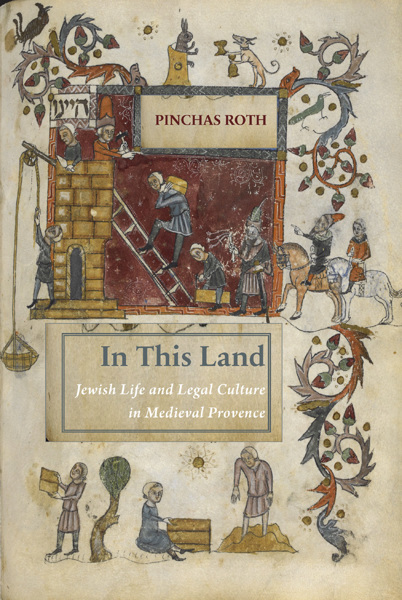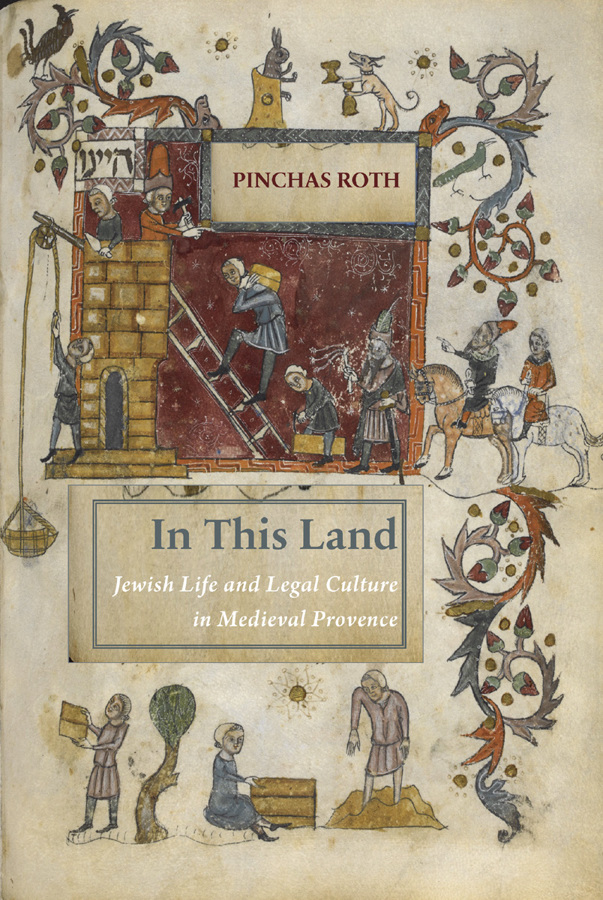
- Pages: x + 168 p.
- Size:124 x 228 mm
- Illustrations:2 b/w
- Language(s):English
- Publication Year:2021
- € 85,00 EXCL. VAT RETAIL PRICE
- ISBN: 978-0-88844-223-9
- Hardback
- Available
In This Land is a remarkable achievement by any standard. It is a clear and well-argued study of the inner workings of the Jewish communities of the medieval county of Provence, This Land, in the idiom of the natives. The author addresses with precision and insight the legal system, social practices, cultural conflicts, and intellectual disputes arising out of the different origins of the Jewish inhabitants of the county. Yet, the study possesses a power beyond its substantive findings. It is a roadmap of how to deal creatively and intelligently with what at first sight appear to be almost intractable sources, namely, the contemporary Hebrew responsa, that body of precedents, advice, and critical discourse, in laconic and highly allusive form, on the proper operation of Jewish law. William Chester Jordan, Princeton University
Roths book will be crucial to scholars of the Jewish community of Provence, as well as those interested in legal culture in the medieval world more broadly. Scholars of Jewish history working on Ashkenaz and Sepharad will find important points of contact and comparison. Those interested in Christian legal culture, particularly the regions of the western Mediterranean influenced by Roman law, will also find this work useful to expand their understanding of legal culture in the region. () his intense focus on the responsa themselves is part of what makes the book such a valuable and original contribution. The book is written in an accessible style with relatively short chapters, which makes it a good option to assign (in whole or in part) to graduate or even advanced undergraduate students. (Sarah Ifft Decker, in The Medieval Review, 08/05/2023)
Pinchas Roth teaches in the Department of Talmud and Oral Law in the Faculty of Jewish Studies at Bar-Ilan University in Israel. A specialist in the history of Halakhah (Jewish law) in the medieval West, he is currently preparing a corpus of medieval rabbinic responsa from England.
Jewish communities existed across the county of Provence throughout the Middle Ages. In This Land reveals the changes that those communities underwent during the late-thirteenth and fourteenth centuries and the social and cultural tensions that shaped their identity.
Legal responsa and other genres of rabbinic literature produced in Provence during this period many of them previously unpublished provide access to aspects of the past that have long gone unnoticed. Engagement with legal culture played a central role in the formation of medieval communal identity, providing both a language and a forum for the airing of grievances and the demarcation of social legitimacy. Relations among different ethnic and religious groups, warring spouses, legists and local power brokers were negotiated through the intricacies of Jewish law or Halakhah. Through a close and historically contextualized reading of rabbinic sources, this book provides a startlingly vivid portrait of Jewish life in southern France during the later Middle Ages.

